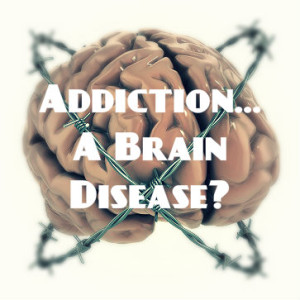Is Addiction A Brain Disease?
The nature of addiction has been debated for decades. The prevailing current view is that addiction is not a choice; it’s a chronic illness that affects the brain. Some, however, even addiction experts, reject this categorization and insist that addiction is a rational choice. There are dangers on both sides. Defining addiction as a disease may give addicts a sense of hopelessness and lack of control. Blaming addicts for their choices, on the other hand, results in stigma and shame.
When coping with a loved one who is addicted, it is important to understand what the research really tells us. While there is still room for debate, the evidence is overwhelming that addicts have a chronic brain disease. By better understanding how drugs or alcohol have changed a loved one’s brain, you may be able to find the patience and compassion to help him.
Addiction Defined
 Modern research has uncovered some of the secrets of addiction. Those at the forefront of addiction expertise and treatment follow evidence-based practices and learn from medical research. With that in mind, the American Society of Addiction Medicine defines addiction as “a primary, chronic disease of brain reward, motivation, memory, and related circuitry.” In other words, to the best knowledge of those who study and treat addiction, addiction is a disease of the brain.
Modern research has uncovered some of the secrets of addiction. Those at the forefront of addiction expertise and treatment follow evidence-based practices and learn from medical research. With that in mind, the American Society of Addiction Medicine defines addiction as “a primary, chronic disease of brain reward, motivation, memory, and related circuitry.” In other words, to the best knowledge of those who study and treat addiction, addiction is a disease of the brain.
How Drugs Affect The Brain
If addiction is a disease of the brain, what exactly does that mean? It is easy to comprehend what a disease is. For instance, asthma is a disease that affects the respiratory system. Inflamed airways make it difficult to breathe. The right medications, avoiding triggers, and following a doctor’s orders all help asthma sufferers stay well and breathe with less difficulty.
Addiction is a disease that affects the brain. The initial use of drugs is a choice, but once in the bloodstream, drugs get into the brain and start to cause changes that impact mood and behavior. The first thing that happens when someone takes a drug is that cells in the brain release large quantities of a chemical called dopamine, which gives the user a sense of euphoria. That great feeling encourages subsequent and repeated drug use in order to recapture the euphoria.
Drugs also impact parts of the brain related to memory and self-control. Memories of taking a drug can make the user start to crave it again and again. The way in which drugs affect our control mechanisms in the brain mean that a user’s ability to resist cravings becomes severely impaired. These brain changes caused by drugs and alcohol clearly demonstrate that addiction is far more complex than making choices.
How Is Addiction Chronic?
As you cope with helping a loved one struggling to get into recovery, it is also important to understand the chronic nature of the disease. This means that there is no cure for the disease, only treatments. Like any other chronic illness, addiction is life-long. Relapses are not uncommon, but can be minimized by keeping up with treatments and establishing and maintaining a strong support system. In fact, research shows that rates of relapse among addicts are similar to those among people with other chronic diseases, like asthma.
Watching a loved one’s struggle with addiction is heartbreaking and frustrating. From the outside looking in, it can be difficult to understand why he doesn’t just stop using drugs. The more you understand his disease, that it impacts his brain and is chronic, the better able you will be to help him and to remain positive and patient with him as he gets treatment.
Read Our Other Posts For Friends And Family Of Addicts



